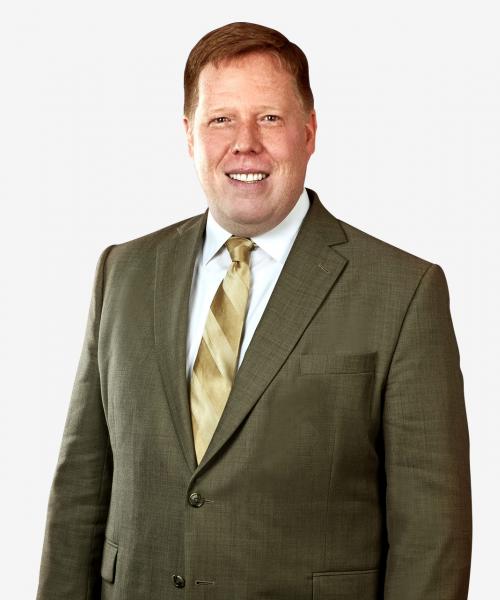Employers Face New Los Angeles Supplemental Paid Sick Leave Ordinance
Adding to possible confusion, the mayor suspended the version of the ordinance that the City Council approved. On his final day to act, Mayor Eric Garcetti signed the legislation. However, under his emergency authority, the mayor issued an emergency order suspending the ordinance and superseding it with different provisions. The mayor’s order stated that his modification would “strike a necessary balance” of interests. While the ordinance was set to expire on December 31, 2020, the mayor’s order suspended the ordinance until two weeks after the end of the current local emergency period – which has no set end date.
Which Employers Does the New Requirement Cover?
Seeking to cover employees not eligible for additional paid sick leave under the FFCRA, the mayor’s order applies to employers who either have
- 500 or more employees within the City of Los Angeles or
- 2,000 or more employees within the United States.
These levels differ from the ordinance. It applies to employers in Los Angeles with 500 or more employees nationally. Although an employer may have a small number of employees working within the City of Los Angeles, if the company has more than 2,000 employees nationwide, the employer must provide up to 80 hours of supplemental paid sick leave to employees who perform any work within the city limits. The order defines an “employer” broadly as including anyone “who directly or through an agent or other person, including through the services of a temporary service or staffing agency or similar entity, employs or exercises over the wages, hours or working conditions of any Employee.”
There are exemptions. Here, the mayor’s order and the ordinance differ significantly. The ordinance exempted only employers of emergency first responders and health care workers. The mayor’s order added exemptions, with several categories of employers now exempt:
- employers who have a paid leave or paid time off policy that already provides a minimum of 160 hours of paid leave annually;
- new businesses started in the city or relocated there on or after September 4, 2019, through March 4, 2020;
- government agencies;
- businesses that were closed for 14 or more days because of an emergency order or provided at least 14 days of leave;
- employers of emergency and health services personnel; and
- critical parcel delivery employers.
Employers with union contracts also may be exempt, if the collective bargaining agreement clearly and unambiguously waives the new Los Angeles requirements.
Which Employees are Eligible?
Employees, to be eligible, must work for an employer who is large enough to fall within the new requirement, not fall within one of the exemptions, and perform work within the city’s geographic boundaries limits. An employee must have been employed by the same employer from February 3, 2020, through March 4, 2020. He or she must be “unable to work or telework” for a qualifying reason, as discussed below.
How Can Supplemental Paid Sick Leave Be Used?
An employee may use the Los Angeles supplemental paid sick leave when an employee takes time off when unable to work or telework, because:
- the employee has a COVID-19 infection or because a public health official or health care provider requires or recommends the employee to self-quarantine to prevent the spread of COVID-19;
- the employee has to care for a family member who is not sick but has been told by a public health official or health care provider to self-quarantine;
- the employee is at least 65-years-old or has a health condition (such as heart disease, asthma, lung disease, kidney disease or diabetes) or a weakened immune system;
- the employee needs to provide care for a family member whose senior care provider, or whose child care provider or minor child’s school has closed in response to public health or other public official’s recommendation.
An employer must provide supplemental paid sick leave upon the oral or written request by the employee. It cannot require a doctor’s note or any documentation for the use of the leave.
What Does an Employer Have to Pay?
Tracking the FFCRA, the amount an employee can receive in supplemental paid sick leave cannot exceed $511 per day or $5,110 in the aggregate. Full-time employees (who work at least 40 hours per week) are eligible to receive up to 80 hours of supplemental paid sick leave. The supplemental paid sick leave is calculated based on the employee’s average two-week pay from February 3, 2020, through March 4, 2020. Part-time employees (who work less than 40 hours per week) are eligible to receive no greater than the employee’s average two-week pay over February 3, 2020, to March 4, 2020.
Are There Any Offsets the Employer Can Apply?
If an employer has already provided paid leave for COVID-19 related purposes on or after Match 4, 2020, any hour already provided to the employee will offset or reduce the supplemental paid sick leave. For example, if an employer has already provided a full-time employee 10 hours of paid leave for COVID-19 purposes on or after March 4, 2020, under this ordinance, the employer would only be obligated to provide 70 hours to that employee.
Retaliation Prohibited
The ordinance unambiguously prohibits retaliation. An employer may not terminate, reduce compensation, or otherwise discriminate against any employee who requests or takes supplemental paid sick leave.
What Are the Penalties for Noncompliance?
The order creates a private cause of action for employees against their employers for any alleged violations of the law. If an employee prevails, employees may be awarded back pay, reinstatement, and any supplemental paid sick leave that was unlawfully withheld (calculated at the employee’s average rate of pay); and other legal or equitable relief the court may deem appropriate. Additionally, the employee may also be awarded attorneys’ fees and costs.
Conclusion
Because Los Angeles enacted the ordinance on short notice during an otherwise challenging time, and with the new requirements under the order becoming effective immediately, employers in Los Angeles have had little time to review the issues and ensure their compliance.
Employers with employees within Los Angeles should review their employee rosters within the City of Los Angeles, and nationally, to determine if the new law applies to their business. If it does, those employers should immediately re-evaluate their paid sick leave policies and practices to ensure compliance with this further paid leave requirement.
Contacts
- Related Practices

